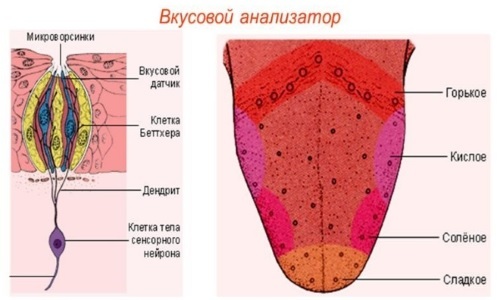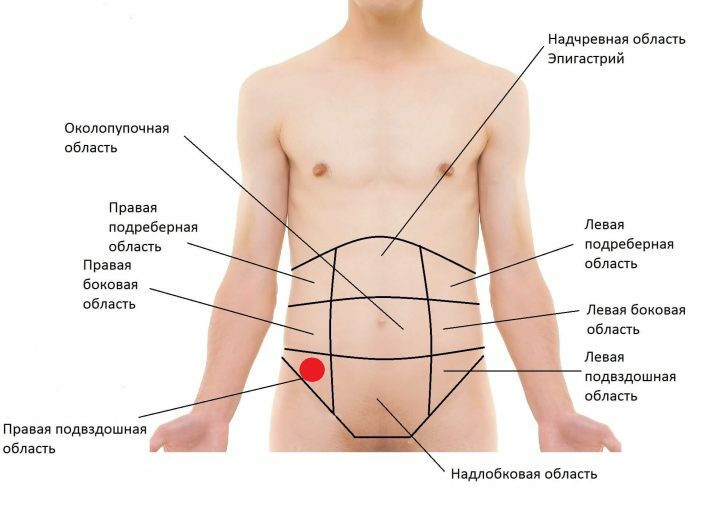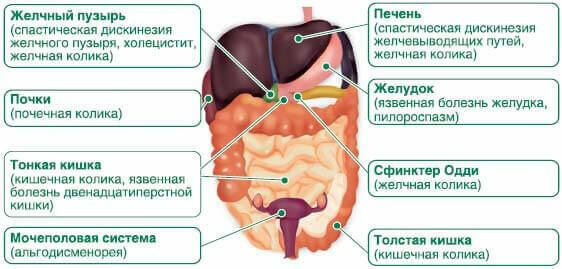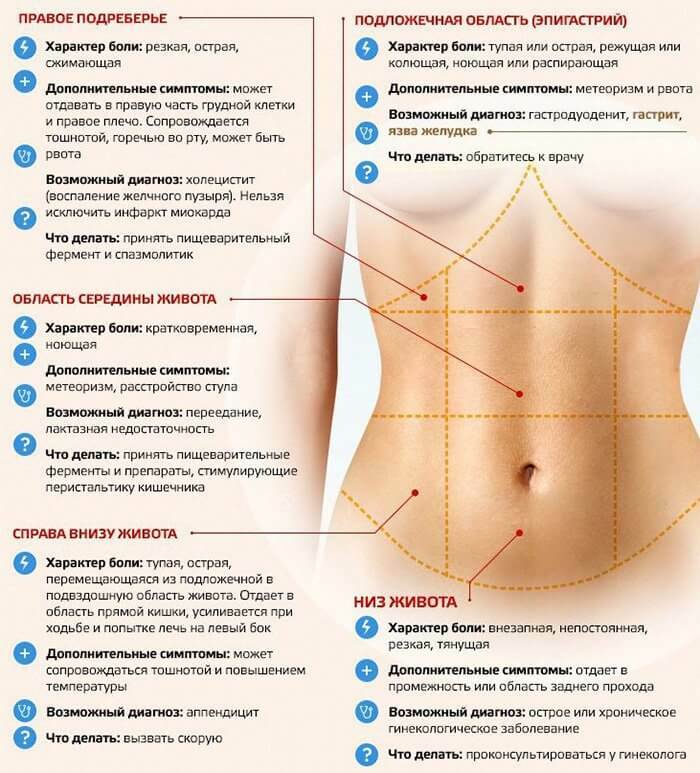Why is there a metallic taste in my mouth?
Metallic taste acts as a kind of indicator of health problems. But it is not always the case. In some cases, the causes can be quite physiological. According to medical statistics, natural factors account for about 30% of all clinical situations. Why is there such a disturbing manifestation?

The appearance of a metallic taste is signaled by the taste receptors in the mouth
Contents
- 1 Causes and factors of becoming
- 1.1 Natural factors
- 1.2 Pathological factors
- 2 What should I do?
Causes and factors of becoming
All causes can be divided into two groups. The former relate to natural factors and include both subjective actions and random events, as well as the use of certain pharmaceutical agents capable of giving such symptoms. The second group of factors has a pathological character - these are diseases and pathogens.
Natural factors
Includes several elements:

Language piercing is able to change the taste sensations
- Wearing metal jewelry on the neck. Especially made of those metals that have the property of rapidly oxidizing. This is iron, copper and some others. During oxidation, reaction products are able to penetrate the bloodstream.
- Drinking lots of water containing metal salts. Many mineral waters have a high concentration of salts. Immediately after their use, an acidic taste in the mouth is noted. With prolonged use, a permanent metallic taste is possible.
- Disadvantage or violation of the rules of oral hygiene. The result is the formation of a large amount of plaque and tartar. Acidic, metallic taste can possess the products of vital activity of the bacterial flora.
- Drinking tap water. In Russia and the CIS countries tap water is proven to be one of the worst in the world due to insufficient cleaning and old pipes. Rusty pipes give salts and oxides to water, so that the liquid acquires a characteristic taste. Long-lasting flavor is caused by chronic intoxication with harmful substances.
- Lip piercing or tongue piercing. It causes oxidation of the metal as a result of its contact with food, drinks and saliva.
- Installation of new dental implants. It provokes the oxidation of the metal structures of the prosthetic tooth and the acid taste in the mouth.
- Preparation of dishes rich in organic acids( vegetable stews, etc.) in iron, cast iron or aluminum utensils. The risk of oxidation of the metal and the release of oxides is high.
Also often indicated symptomatology is the reception of certain pharmaceutical preparations. Among them:

Drugs and nutritional supplements can cause a taste of metal
- Biologically active additives to reduce body weight. Provoke a change in the hormonal background of a man. The result is a decrease in the susceptibility of taste buds to certain foods and, conversely, an increase in the perception of acidic and saline.
- Antibacterials of a wide spectrum of action: tetracycline, gentamicin and others.
- Medicines for hypotensive action( used for hypertension).
- Preparations-glucocorticosteroids. Prednisolone and other more powerful means.
- Medications to reduce blood sugar.
- Drugs for lowering cholesterol( statins).
- First-generation antihistamines. This includes Suprastin, Tavegil, Diazolin and others. Causes dryness in the mouth and, as a result, a metallic taste.
- Enzymatic drugs for the treatment of pancreatic problems.
- Preparations for lowering the production of hydrochloric acid in the stomach.
The list of medicines is incomplete. These side effects have some antacid agents, etc.
Pathological factors
Many diseases have a dental nature:
- Periodontitis. A pathology characterized by inflammation of the gums and destruction of the container of bone structures. Typical symptoms are such as bleeding, loosening of the teeth and their unstable position in the gum pocket, plaque formation, pain syndrome. Metallic taste is noted due to the release of blood.
- Stomatitis. Aphthous form( in which ulcers form on the surface of the tongue and mucous membranes of the oral cavity), the catarrhal form( with inflammation of the superficial structures of the mucous membranes), ulcerous form( with purulent-necrotic changes).All three forms are characterized on the one hand by bleeding, which is why a symptom is observed, on the other hand, by the destruction of taste receptors and by the measurement of their receptivity.
- Glossitis. It is an inflammatory lesion of the tongue. The result of injury, chemical, thermal or viral effects on the organ. It causes a change in taste perception. Patients note a metallic taste in the mouth, pain in the area of the lesion, difficulties with articulation, inability to eat normally.
Diseases of the gastrointestinal tract also cause similar manifestations:

Gastrointestinal diseases cause a change in gustatory aspiration
- Hepatitis, liver cancer, cystic neoplasms, cholecystitis. Provoke a change in taste perception due to throwing bile into the mouth. The most characteristic manifestation is for cholecystitis and cancer( in the latter case, metallic taste can be the only sign of pathology).
- Other diseases of the biliary tract. Dyskinesia and other pathologies can give identical symptoms. Frequent companions of a person suffering from problems with bile ducts are bitterness and metallic taste in the mouth, pain in the right hypochondrium, nausea, vomiting, acidic eructation, stool disorders.
- Problems with stomach. Gastritis with low and high acidity, reflux esophagitis. These conditions lead to the transfer of acid into the esophagus, and from there to the oral cavity of the patient. Hence the metallic taste. Additionally observed: belching, heartburn, pain in the epigastric region. These are very common causes of the described manifestation.
Endocrine pathologies:

The level of hormones changes the taste sensations of
- . First of all, diabetes mellitus. The disease changes the nature of the hormonal background and taste perception.
- Hyperthyroidism.
Pathologies associated with a deficiency of vitamins and substances in the body:
- Iron deficiency. It provokes dry mouth and false metallic taste.
- Vitamin B deficiency
Pulmonary pathology:
- pneumonia;
- lung cancer;
- bronchiectatic disease;
- tuberculosis;
- abscess of pulmonary structures.
All described diseases of the lower respiratory tract lead to the discharge of blood into the oral cavity with a cough. Additionally, pancreatitis can be the cause of the painful manifestation. In extremely rare cases, cystic fibrosis.
What should I do?
It is necessary to treat the underlying disease. The metallic taste in the mouth is just one of many symptoms. It is necessary to consult a doctor for advice and take a number of diagnostic measures. Fortunately, the symptom complexes of these pathologies are quite specific in each case for early detection of the source of the problem. In the absence of pathology, the elimination of the factor that caused the trait is shown.
Recommended for viewing:



